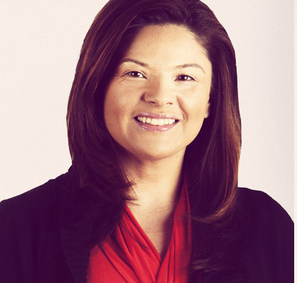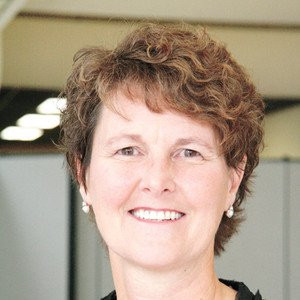It’s All About Education: School Choice - Vouchers and Tax-Credit Scholarships Don’t Pay
Wednesday, April 15, 2015
A few weeks ago, I wrote about the many options parents have when choosing a school for their child. While I absolutely support parents’ rights to educate themselves about their options and to choose a school that matches their family’s philosophical and educational needs, I do not support school vouchers or similar programs.
School voucher systems give parents subsidies that can be directed towards the school of their choice, whether that school is a public, parochial, or independent school; in some jurisdictions, the subsidy can even be applied towards homeschooling. Currently, thirteen states and the District of Columbia have some sort of voucher program, although eligibility varies by state.
Fourteen states, including Rhode Island, offer tax-credit scholarships. Through these programs, businesses (and in some cases, individuals) donate to a scholarship granting organization (SGO), and in return they receive a tax credit. Eligible (low-income) families may then apply for a scholarship to be used towards tuition at a private or parochial school. There is generally a cap on the tax credit and the number of students participating in the program.
GET THE LATEST BREAKING NEWS HERE -- SIGN UP FOR GOLOCAL FREE DAILY EBLASTProponents of voucher programs believe that when Congress reauthorizes the Elementary and Secondary Education Act (ESEA), it should include taxpayer-funded scholarships that parents can use to send their children to the school of their choice. On the surface, it sounds like a good idea; why wouldn’t we want parents to be able to direct their tax dollars to the school that educates their children? But there are several good reasons why vouchers and tax credits will not strengthen our education system.
There is no evidence that students who receive vouchers perform any better in school. A report released in 2011 found that, over the course of a decade, vouchers had no positive effect on student academic achievement (based on the results of reading and math assessments). In other words, students receiving vouchers performed at about the same level as their public school peers who stayed in their assigned schools.
Voucher programs divert much-needed funding away from public schools, particularly schools serving low-income populations. The money directed towards voucher programs generally is siphoned away from Title I, a program which allocates funds to schools based on economic need. Schools with the most need will likely lose the most funding; and the students who are left in those schools will have even fewer resources than they already do.
Both vouchers and tax-credit scholarships weaken our public school system. According to the Southern Education Foundation, over the last year, over $1 billion in tax funding went to private organizations and private schools through these programs. That’s $1 billion that has come directly out of our public school budget, to provide additional teachers, support staff (such as college counselors), arts programs, and materials and supplies. At the same time that our low-income student population is growing, our public schools are losing the funding they need to adequately serve their students.
Vouchers and tax-credit scholarships will not have any effect on the achievement gap. While private schools can choose to accept or deny admission to student applicants, public schools serve all of the students who enroll, regardless of their academic ability, language skills, or special needs. Diverting funds that are desperately needed by public schools that serve an increasingly diverse student body will not help us close the achievement gap; it will only hinder their ability to help their students attain success.
Many states will continue to offer these programs promoting school choice, as their advocates argue that allowing parents to choose alternative schools for their children will build competition and force underperforming public schools to either improve or close. Unfortunately, there is no evidence of this outcome. For this reason, our federal government should not encourage voucher and tax-credit scholarship programs, and they should not be written into the reauthorization of the ESEA.
A strong public school system benefits all of us, regardless of whether we have children attending the public schools – and our taxes should support those schools. Like charter schools, vouchers and tax-credit scholarship programs are an attempt to appease voting and taxpaying parents by offering them alternatives. Instead, we should be using this funding to strengthen all of our public schools.
As author John Green writes, “We have discovered as a species that it is useful to have an educated population. You do not need to be a student or have a child who is a student to benefit from public education. Every second of every day of your life, you benefit from public education. So let me explain why I like to pay taxes for schools, even though I don’t personally have a kid in school; it’s because I don’t like living in a country with a bunch of stupid people.”
Lauri Lee is an independent consultant with over twenty years of experience in both public and private education, with learners from infants through adults. With experience in teaching, marketing, communications, social media, development, admissions, and technology, she is able to synthesize many of the issues facing our educational system today. She lives in Providence, RI with her family, a big dog, and a small cat. She blogs at http://www.AllAboutEducation.net and you can follow her on Twitter at @fridovichlee.
Related Slideshow: RI Experts on the Biggest Issues Facing Public Education
On Friday November 22, the Hassenfeld Institute for Public Leadership at Bryant University, the Latino Policy Institute of Roger Williams University, the Rhode Island Association of School Committees, the Providence Student Union, and RI-CAN: Rhode Island Campaign for Achievement Now will host Rhode Island leaders in the public and nonprofit sectors for a symposium on "the civil rights issue of the 21st century, adequacy and equity and the State of Education in Rhode Island."
Weighing in on the the "three biggest factors" facing education in the state today are symposium participatnts Gary Sasse, Founding Director of the Hassenfeld Institute for Leadership; Christine Lopes Metcalfe, Executive Director of RI-CAN; Anna Cano-Morales, Chairwoman of the Board of Trustees, Central Falls Public Schools and Director, Latino Policy Institute at Roger Williams University; Tim Duffy, Executive Director, RI Association of School Committees; and Deborah Cylke, Superintendent of Pawtucket Public Schools.
Related Articles
- It’s All About Education: Can Universal Preschool Close the Achievement Gap?
- It’s All About Education: What is an “Excellent” Teacher, Anyway?
- It’s All About Education: How Can We Ensure that Kids Have Great Teachers?
- It’s All About Education: The High Cost of Higher Education
- It’s All About Education: The Rise in Kindergarten Readiness Testing
- It’s All About Education: Will Charter Schools Fix Our Public School System?
- It’s All About Education: Why Common Core Won’t Help Our Children
- It’s All About Education: Student Engagement Leads to Success
- It’s All About Education: Making the Dream a Reality
- It’s All About Education: Playing in the Woods Can Help Kids Reach Their Full Potential
- It’s All About Education: What if College Isn’t Necessary
- It’s All About Education: Some of Education’s Best Ideas from 2014
- It’s All About Education: Social Promotion is Not the Problem
- It’s All About Education: How Breakfast Could Help Close the Achievement Gap
- It’s All About Education: Changing Lives with School Lunches
- It’s All About Education: Choosing the Right School for Your Child
- It’s All About Education: After School Programs Make a Difference
- It’s All About Education: Learning Life Skills at Hope High
- It’s All About Education: How Vaccination Affects Schools – and Society
- It’s All About Education: Is the American Dream a Pipe Dream?
- It’s All About Education: Schools that Harness the Power of Nature
- It’s All About Education: Free College Tuition - Why Just Community College?
- It’s All About Education: A Recipe for Disaster - Common Core Standards for Kindergarten
- It’s All About Education: Inequities in the College Admissions Process
- It’s All About Education: Failure to Launch - It’s Not Just a Movie













